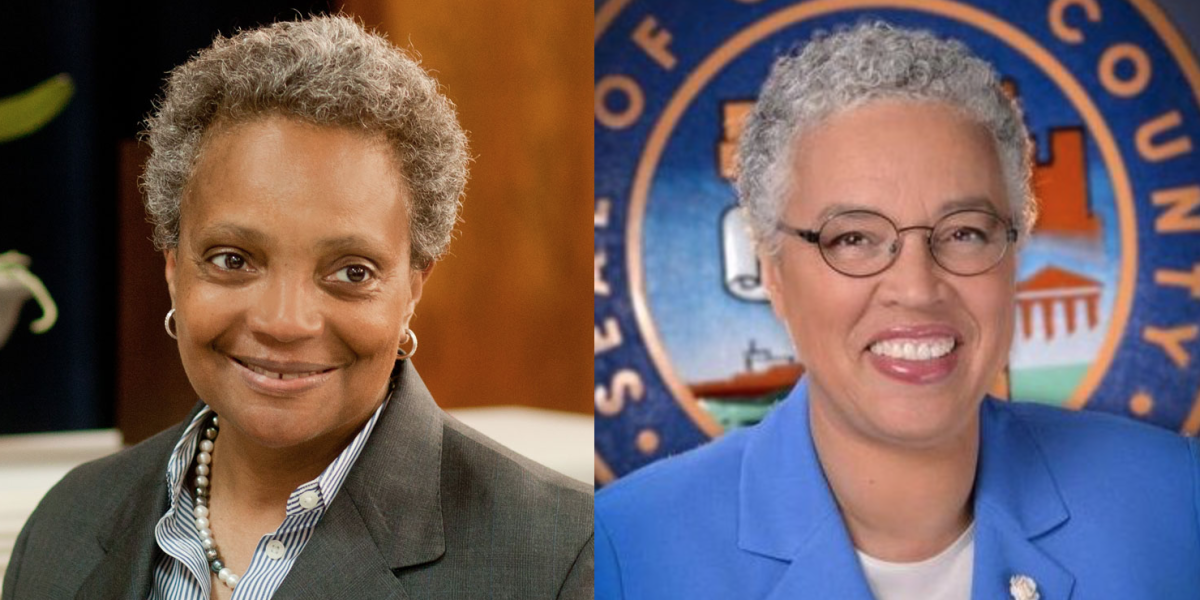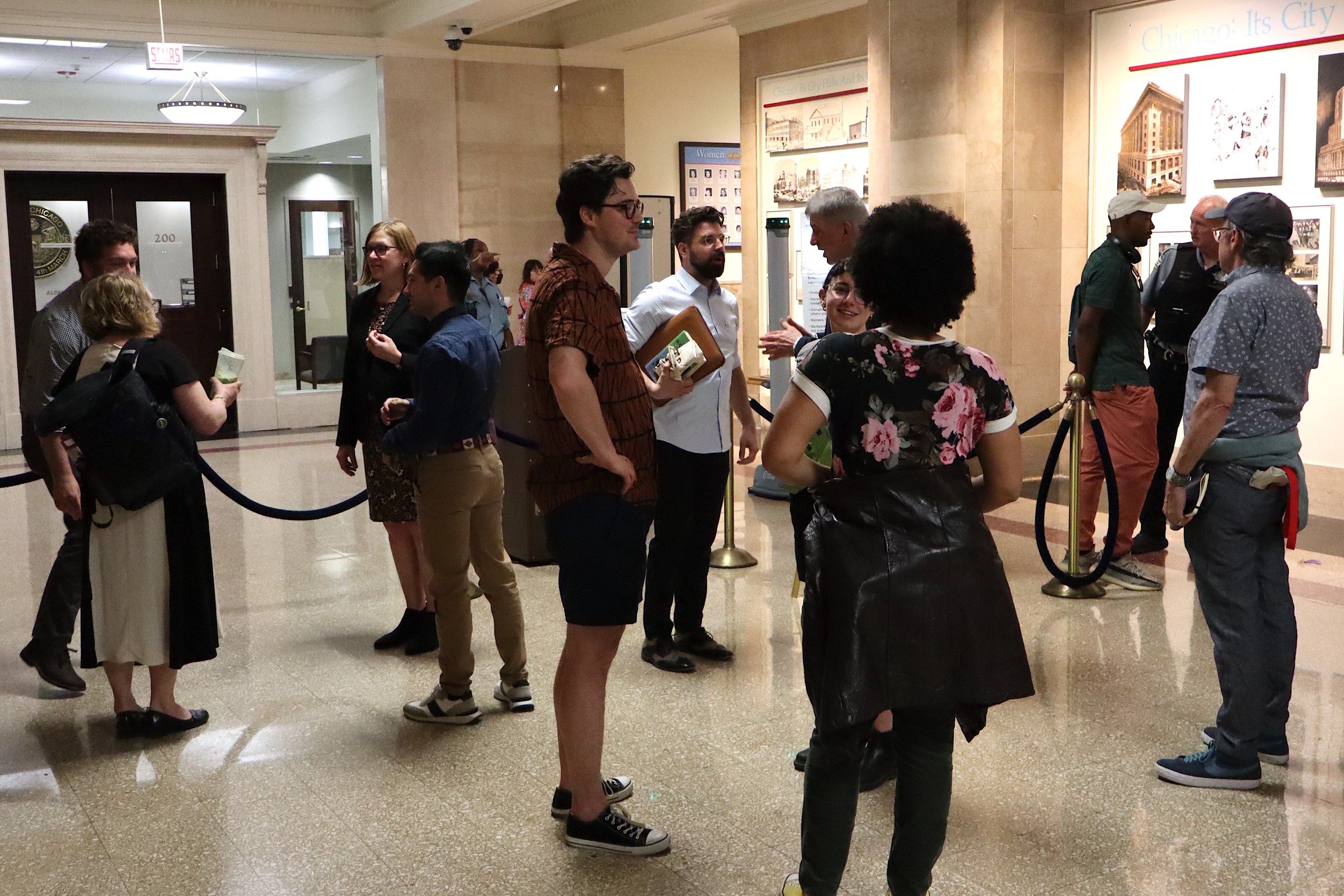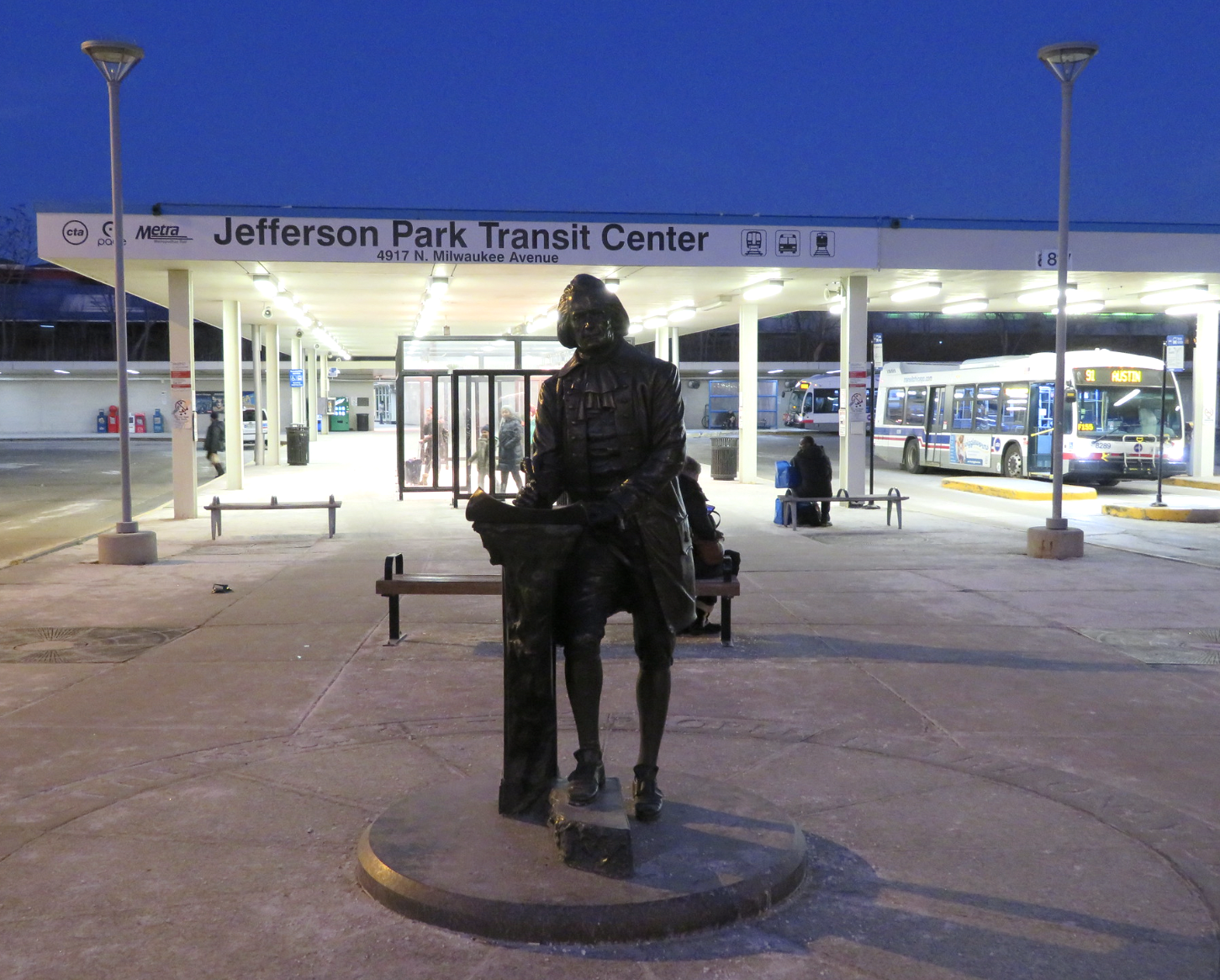In Mayor Lori Lightfoot's response to the Active Transportation Alliance candidates survey during the last election, she endorsed Active Trans' call for "increasing the frequency of Metra Electric trains (every 15 minutes or less) on the full Metra Electric District line," as well as offering reduced transit fares for lower-income residents.
However, on Wednesday Lightfoot told reporters she is opposed to a plan, backed by her mayoral rival Cook County board president Toni Preckwinkle, to pilot increased service and lower fares on Metra lines serving the South Side and south suburbs. The mayor argued that the program would have a "dramatic effect" on reducing CTA ridership.
As reported by the Chicago Tribune's Juan Perez Jr., earlier this week at a City Club of Chicago event, Preckwinkle presented the plan for lower fares and increased service on the Metra Electric District and Rock Island lines, arguing that the initiative would improve local transit equity. The county would subsidize the three-year pilot.
“I’m not in favor of it based upon the analysis that we’ve done," Lightfoot said, according to the Tribune. "I’ve spent some time talking with (CTA President) Dorval Carter about it, and it looks like it is essentially a transfer of CTA passengers to the Metra line."
"Obviously there’s an area of the South Side where we need to have better transportation services," Lightfoot said, according to the Tribune. "That Metra line is underserved, and I’m absolutely willing to work with Metra and the county, but this particular proposal I think causes problems for the CTA and I’m not going to support something that would have the effect of diminishing ridership at the CTA.”
Linda Thisted from the Coalition for a Modern Metra Electric told the Trib she was disappointed by the mayor's statements "This has got to be about the people, not the agencies. The agencies should not be competing for riders. What we need is an integrated public transit system.” She noted that the proposal includes a county subsidy to cover any loss of revenue to the CTA or Metra.
Yesterday Active Trans spokesman Kyle Whitehead criticized Lightfoot's position in a statement. "The region has come too far with this plan for it to fall apart at this stage," he said. "Politics and inter-agency competition shouldn’t get in the way of delivering better transit service to the people of Chicago’s South Side and South Suburbs."
"Southland residents are better served by fast, frequent, and affordable Metra Electric service than buses that aren’t given any priority on city streets," Whitehead added. "Leaders are working to reverse bus ridership declines with upgrades like bus lanes and traffic signal priority, but we’re a long way from system-wide improvement. This Metra Electric pilot can deliver benefits now."
There are lots of reason why if, assuming the initiative results in more convenient, shorter, and more affordable transit trips for South Side and Southland residents, including many lower-income and working class people, it shouldn't matter whether the CTA loses ridership. For example, as it stands many South Siders currently opt to ride buses to the Red Line to get downtown, rather that take much faster, more direct Metra trips, due to cost and schedule issues. That's a major waste of their time, and it makes it more difficult for them to access job and education opportunities in other parts of the city.
CTA and Metra should be developing their services to serve the needs of riders, and the Cook County initiative would do just that. The two transit agencies are not supposed to be in competition with each other. They are both transit service providers that should be working for the same goal: affordable, barrier-free transportation for everyone. Whichever of the two systems can best provide that to a particular rider should be the one they use, rather than the status quo of poor transit access being preserved in the name of maintaining ridership on one system or the other.
Streetsblog readers said as much in comments yesterday. "Obstructing transit improvement on the basis of turf protection continues to deprive underserved communities of better travel options," noted David Vartinoff. "When NYC eliminated the double fare for subway riders who needed buses to reach the trains, total ridership increased. Rather than fearing integration of MED and Rock Island will cause lower ridership on the Red and Green Lines, we should be looking to improve the connectivity of the crosstown buses to all of the trains so that any Chicagoan can get where they need to go more conveniently and faster."
SBC reader Kevin Monahan seconded that. "Lets assume that the CTA would lose some ridership to lower-fare MED and RI service. Where would those losses be seen? If they were seen in the CTA bus services, then I say that's OK, as those bus and driver resources could probably be allocated to other corridors that are ripe for increased service/usage (a lot of E-W routes that link up with CTA stations.)" He argued that if the south Red Line were to lose some ridership from lower-fare Metra service, that should be accepted as a cost of providing better service to underserved communities. "Further, with increased E-W bus service on the South Side, South Side Red Line ridership losses might be made up."
"Lightfoot speaks of breaking out of old mentalities in city governance, and she speaks about needing to increase transit service to undeserved areas of the city, and she speaks about needing to take steps to improve the health of our environment," Monahan noted. "For all three of these reasons, she needs to get on board with lowering the fares of MED and RI service. I really hope this isn't just another instance of Lightfoot battling Preckwinkle -- that feud is getting old very fast."




